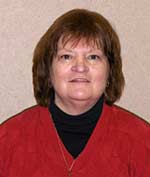- By Lunzeta Brackens
- May 13, 2008
- By David Kopf
- May 13, 2008
- By Ted L. Jones, Jr.
- May 13, 2008
- By Laurie Watanabe
- May 13, 2008
- By David Kopf
- May 13, 2008
Now that CMS has expanded CPAP coverage for OSA patients diagnosed via home sleep testing devices types II, III, and IV, will HST encourage patients to flock to your door?
- By Lunzeta Brackens
- May 09, 2008
AAHomecare President/CEO Tyler Wilson urges DME providers to keep working with their legislators, local media and Medicare beneficiaries on urgent industry issues at Medtrade Spring.
- By Laurie Watanabe
- May 09, 2008
Pride Mobility Chairman and CEO calls on HHS Secretary to investigate potentially problematic standard power chair bids in Riverside, Calif. bidding area.
Elizabeth Cole, MSPT had joined U.S. Rehab, a division of VGM Group Inc., as its new director of clinical rehab services.
A sneak peak at the product releases and enhancements that will be on display at Medtrade Spring 2008, which is happening next week, May 6 through May 8, at the Long Beach Convention Center in Long Beach, Calif.
- By Kathryn Hansen
- May 01, 2008
Legal Speak
As expected, on March 13, 2008, the Centers for Medicare & Medicaid Services (CMS) released a decision memo on a national coverage determination (NCD) for the use of home sleep tests to diagnose obstructive sleep apnea (OSA). CMS’ decision had been the subject of much speculation in the clinical and provider communities, and many expected CMS to approve home sleep studies for diagnosing OSA. In fact, CMS’ decision permits the use of home sleep tests, but CPAP is covered only for a trial period of up to 12 weeks regardless of the type of test performed, unless the beneficiary demonstrates that he is benefiting from therapy. The devices approved for home studies include Type II, III or IV with at least three channels.
- By Asela Cuervo
- May 01, 2008
Editor's Note
- By Elisha Bury
- May 01, 2008
Surgery is scary business for most patients, but patients with undiagnosed sleep apnea have something extra to worry about. Anesthesia and post-operative pain medications in conjunction with sleep apnea could cause fatal complications. Because of this danger and the growing prevalence of sleep apnea, diagnosing patients prior to surgery is of the utmost importance. Respiratory providers can play a vital role in educating anesthesiologists about the dangers of undiagnosed sleep apnea. Integration of a sleep apnea management program could reduce the risk of an adverse event during a sedated surgery or procedure experience. In the following article, Kathryn Hansen discusses the merits of such a plan and what respiratory therapists need to know about patients at risk.
- By Kathryn Hansen
- May 01, 2008

Funding Focus
On March 14, the much-anticipated decision memo on a revised National Coverage Determination (NCD) for CPAP coverage for obstructive sleep apnea arrived from the Centers for Medicare & Medicaid Services (CMS). Unfortunately, with it came the same questions that have been posed by many in the industry for several months. These questions relate to a clear definition of beneficiary improvement; the role the HME can take in home sleep testing; how titration is to be accomplished; and reimbursement.
- By Kelly Riley
- May 01, 2008
The following studies show a link between sleep and fibromyalgia.
- By Elisha Bury
- May 01, 2008
The link between fibromyalgia and sleep dates back to a 1975 study by Dr. Harvey Moldofsky, who found a high incidence of alpha-delta sleep in fibromyalgia patients — or the intrusion of alpha waves (arousal pattern) into restorative sleep. Only recently have researchers begun to explore the role of sleep apnea in fibromyalgia.
- By Elisha Bury
- May 01, 2008
At a March 20 news conference, Centers for Medicare & Medicaid Services (CMS) Acting Administrator Kerry Weems announced that the agency had sent letters via overnight mail to suppliers who submitted bids to participate in the first round of competitive bidding. The letters arrived March 21.
- By Elisha Bury
- May 01, 2008
Aging population creating an increasing demand for treatment of sores caused by patient bodyweight, according to new report.